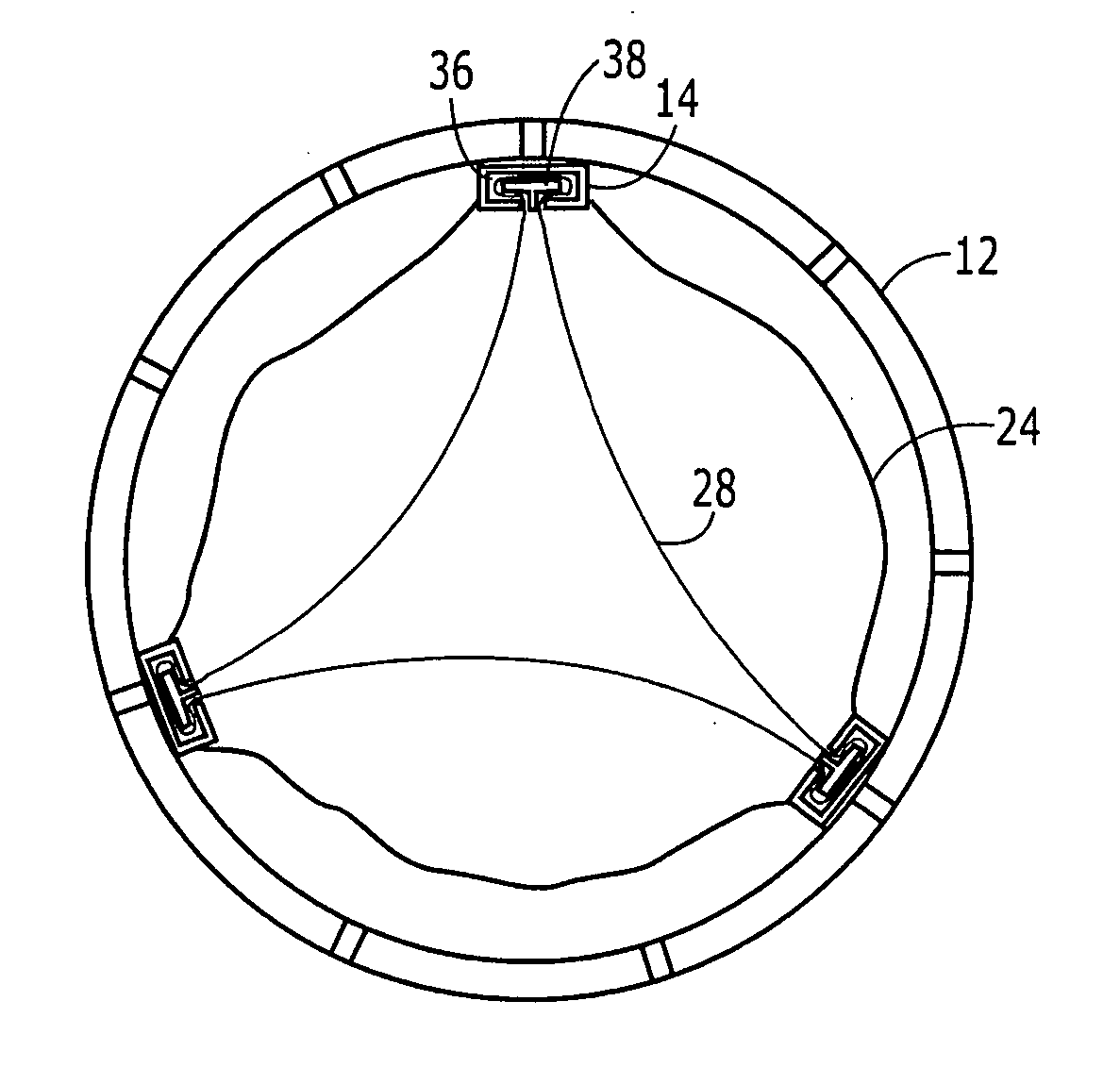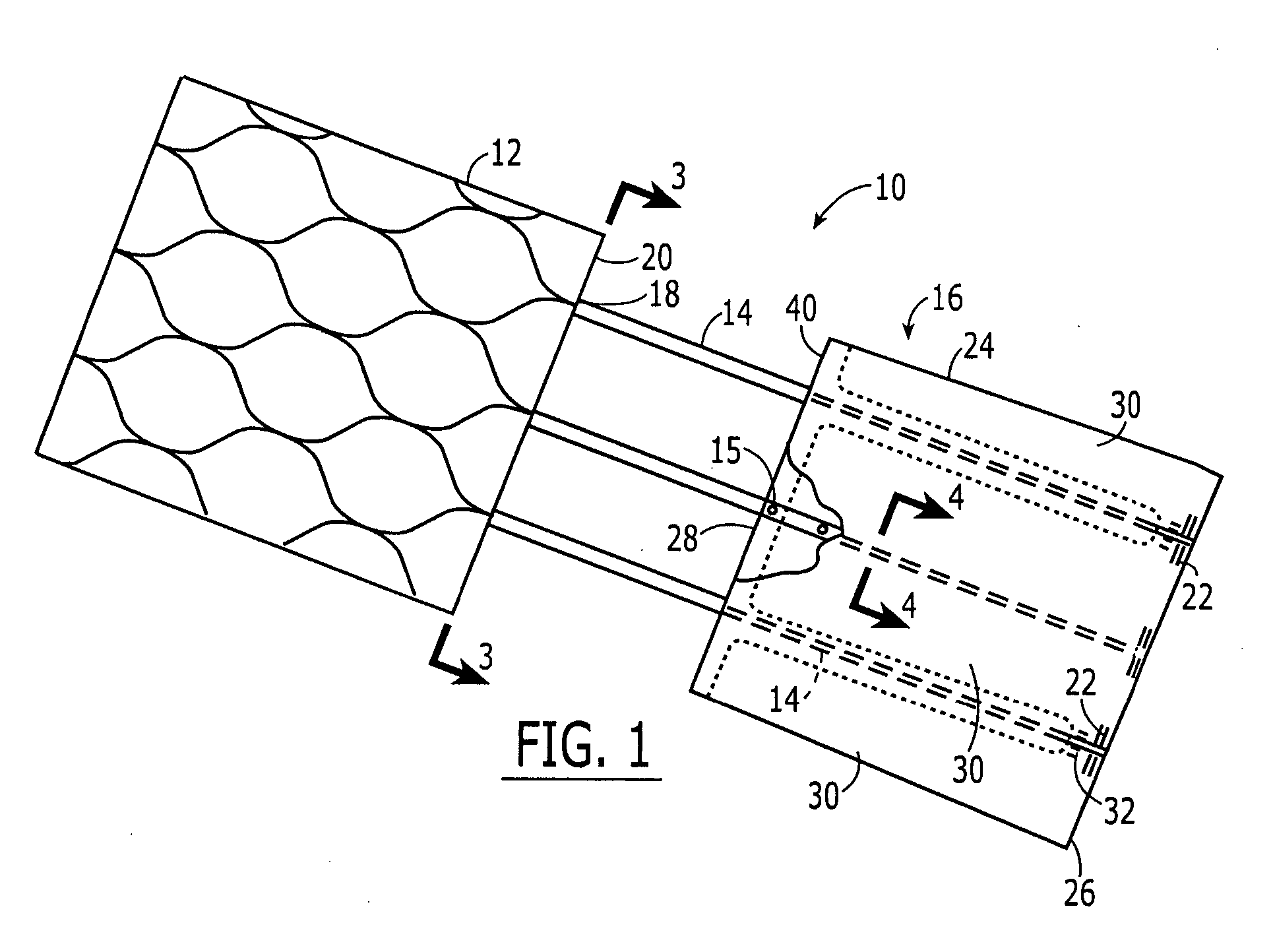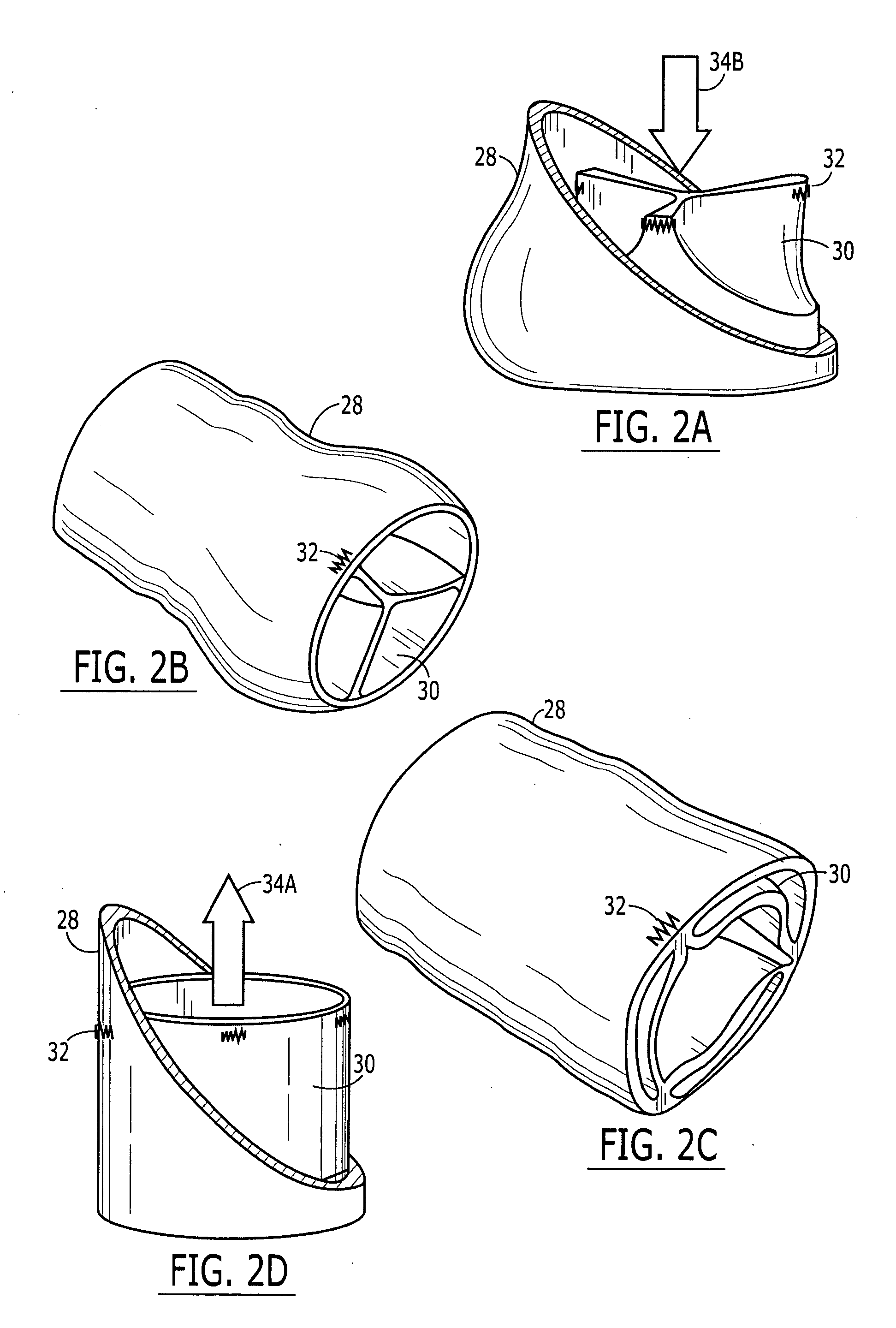Heart valve and method for insertion of the heart valve into a bodily vessel
a heart valve and stent technology, applied in the field of heart valves, can solve the problems that the heart valve with a stent may not function exactly like the native valve, and achieve the effects of reducing the thickness of the wall, and facilitating separation of the sheath
- Summary
- Abstract
- Description
- Claims
- Application Information
AI Technical Summary
Benefits of technology
Problems solved by technology
Method used
Image
Examples
Embodiment Construction
[0065]FIG. 1 illustrates a valve 10 of an exemplary embodiment of the present invention including an anchor portion 12, connectors 14 and a valve portion 16 spaced a distance away from anchor portion 12. Connectors 14 are connected on a distal end 18 to a proximal end 20 of anchor portion 12. Connectors 14 may extend at least partially along the length of the anchor portion 12. Connectors 14 may be connected to anchor portion 12, for example, by welding, suturing, gluing, clipping, rivets, etc. Connectors 14 may also be integral with anchor portion 12.
[0066] Connectors 14 extend along the commissural lines of the valve portion 16 a sufficient length so as to assure a strong connection with the valve portion 16. The connectors 14 may also be connected to the valve portion 16 at different points along its circumference. The valve portion 16 may be covered by a cloth 24 made from, for example, DACRON®, but also may be used without such covering. The portion of the connectors 14 connec...
PUM
 Login to View More
Login to View More Abstract
Description
Claims
Application Information
 Login to View More
Login to View More - R&D
- Intellectual Property
- Life Sciences
- Materials
- Tech Scout
- Unparalleled Data Quality
- Higher Quality Content
- 60% Fewer Hallucinations
Browse by: Latest US Patents, China's latest patents, Technical Efficacy Thesaurus, Application Domain, Technology Topic, Popular Technical Reports.
© 2025 PatSnap. All rights reserved.Legal|Privacy policy|Modern Slavery Act Transparency Statement|Sitemap|About US| Contact US: help@patsnap.com



